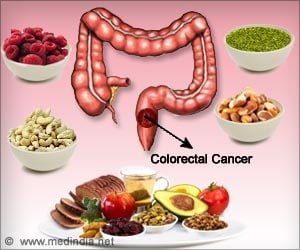Scientists have found that genetic variations of drugs like aspirin, non-steroidal anti-inflammatory drugs can reduce its impact on treating colorectal cancer.

For the study, Peters and colleagues including co-corresponding author and lead biostatistician Li Hsu, Ph.D., also of Fred Hutch, analyzed data from 10 large population-based studies in North America, Australia and Germany. They compared genetic and lifestyle data from 8,624 people who developed colorectal cancer with that of 8,553 people who did not (both groups were matched by age and gender).
While regular use of aspirin and NSAIDS was associated with an overall reduced risk of colorectal cancer, the researchers found no such protective effect among about 9 percent of the study participants who had genetic variations on chromosome 15. What’s more, about 4 percent of the participants who carried two even rarer genotypes on chromosome 12 had an increased risk of colorectal cancer.
Understanding the interplay between such genetic variations and the use of aspirin and NSAIDs, also known as "gene-by-environment interactions," eventually may help identify those who could benefit most from these medications for cancer prevention as well as those who should steer clear of them.
"Our hope is that we can find a subgroup of the population where the benefits so outweigh the risks that it makes sense to take aspirin or NSAIDs," Peters said. "But we’re not there yet."
Peters and colleagues are planning a larger follow-up study in the next several years with even greater statistical power to see if they can replicate their findings. "We would certainly like to validate the results and truly see whether we can understand the biological mechanisms of these gene-by-environment interactions," Hsu said.
Source-Medindia
 MEDINDIA
MEDINDIA




 Email
Email










